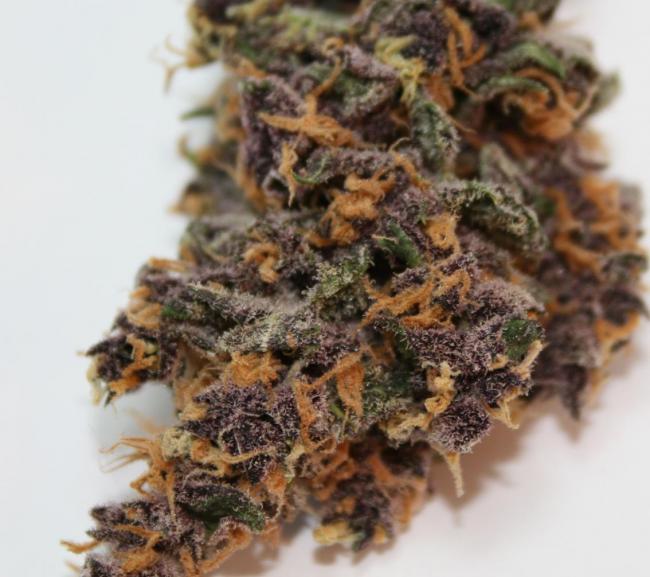State licensing changes affecting local marijuana stores
John Davis, owner of Northwest Patient Resource Center, is concerned about how Senate Bill 5052 will affect his business.
Mon, 03/21/2016
By Lindsay Peyton
Marijuana is not just for stoner kids anymore.
The typical user has changed -- now that buying weed is legal and has a growing menu of ways to consume it.
“If you spend a day in our store, you’ll see that anyone out on the street could be coming in,” Steven Ode, chief operating officer of Seattle Cannabis Co. said. “We get a lot of professional people and a lot of your stereotypical users.”
Clifford Gehrett, manager at the West Seattle Marijuana Store, 10825 Myers Way S., said most of his customers are middle aged.
“But we do have customers coming who are 21 years old all the way up to 80-plus,” he said. “We get everyone from your landscaper coming in straight after work to people wearing suits who just came from those high rises downtown.”
Some shoppers are surprised to find that prices in the store are comparable or even less than what street dealers offer.
“Certainly the quality is better – and what people get on the streets is not lab-tested or regulated,” Gehrett said. “People want the comfort of knowing what they are getting – and what dosage they should be buying.”
He believes that a number of customers have traded alcohol for marijuana. “Some perceive it to be healthier – and I’m one of them,” he said.
Gehrett said tourists have also boosted the business. “A lot of travelers just want to go to a legal pot shop, because it’s such a novelty,” he said.
Ode also sees an influx of tourists, mainly during the summer. He started out growing marijuana before the option to open a recreational shop became available. “It seemed like a good opportunity for entrepreneurs,” he said. “And we’ve been really successful.”
Ode said shoppers at his 3230 1st Avenue South location enjoy buying concentrates, vape products and edibles – to avoid health issues associated with smoking.
The most challenging part of the business, he maintains, has been keeping up with the Liquor and Cannabis Board.
“It’s hard to get a clear explanation of anything,” Ode said. “Things change almost every day. Everyone is in the same boat of trying to figure out what the state wants.”
Chris Cody, owner of Herban Legends, has been trying to navigate the legal system affecting marijuana since he went into business in 2011. He is a member of the Coalition for Cannabis Standards and Ethics – and was actively involved in the community in White Center, where the shop was located.
When Senate Bill 5052 passed, which changed regulations on medical marijuana facilities, he decided to relocate to Belltown rather than try to stay put.
“We were the first to open in White Center and the longest one there,” he said.
Cody, a resident of West Seattle, is a big believer in the medical benefits of marijuana. He has seen the drug help ease pain in a number of individuals – and wanted to do his part to make it more accessible to those in need.
“You just had to find a landlord who was willing to rent you space to operate a medical shop – which was no small feat,” he said.
Now the state is requiring everyone to get a recreational license.
“It’s a new industry and things change very drastically – sometimes from day to day,” Cody said. “But I handle stress well, and I’ve never done anything more rewarding.”
He explained that in the past, his staff spent a lot of time with patients, discussing their medical conditions.
“Now it will be more like a liquor store, a retail store,” he said.
The new location at 55 Bell Street is slated to have a grand opening on April 20.
John Davis, owner of Northwest Patient Resource Center, is concerned about how Senate Bill 5052 will affect his business.
He opened the facility located at 9456 35th Ave SW in 2011 – and has been heavily involved in the industry since 2009.
“I was an advocate of cannabis law reform for many years,” he said. “Our recent prohibition has been the height of stupidity. It has not made cannabis less prevalent. It has fueled organized crime. It just didn’t work.”
Davis set out to run a model business – with a strict sense of ethics. “I wanted to do something different from what was being done,” he said. “In 2011, neighbors cautiously crept in and looked around. Little by little, they went from being nervous to accepting to actually liking the place.”
Now he feels like established medical businesses are losing out – and recreational shops have gained favor with the Liquor and Cannabis Board.
“They gave out licenses to people with no history in the industry,” he said. “They don’t care about medical, not at all. I’m stuck in a situation where I have to fight.”
Davis is hoping to obtain a recreational license before the July 1 deadline.
“After five years of going through and doing everything asked of me to show that I’m legitimate and doing everything right, I’m facing business closure,” he said. “I’m in a fight for the survival of my business.”


